Please choose a body region on the right for you to pin point the problem area of your body.

Shop by Condition

Shop by Brand
Eating can be incredibly difficult for people who suffer from certain conditions, such as arthritis, tremors, age-related weakness, and other disabilities. People who struggle with using eating utensils might feel embarrassed to dine out with others, and the reduced socialization can in turn cause depression and low self-esteem. Even at home, they might eat less than the daily required calorie intake, resulting in weight loss and other health issues.
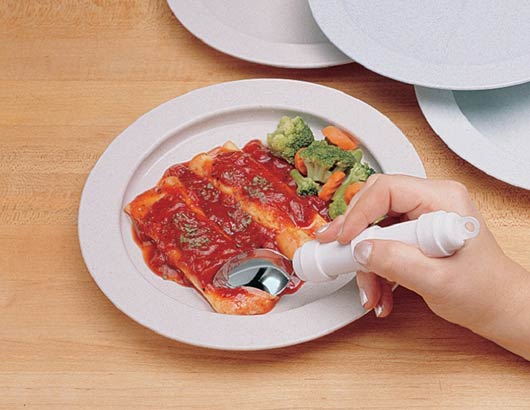 Adaptive dining cutlery can help these people enjoy their favorite food again. These highly effective tools come in different models and styles to help people with physical disabilities eat independently. Adaptive dining cutlery can improve their ability to move food onto the utensil and then into their mouth. Let’s take a look at the most common types of adaptive dining cutlery.
Adaptive dining cutlery can help these people enjoy their favorite food again. These highly effective tools come in different models and styles to help people with physical disabilities eat independently. Adaptive dining cutlery can improve their ability to move food onto the utensil and then into their mouth. Let’s take a look at the most common types of adaptive dining cutlery.
Weighted utensils are great for people who suffer from conditions such as Parkinson’s. These utensils will stabilize hand tremors so it’s easier for the person to eat. Utensils with larger grips come with different weights, surfaces, and sizes to suit each user. For example, a spoon can have a textured surface to improve grip or a contoured shape to fit better in the hand, making it easier to manipulate. Built-up handles can be added to pre-existing utensils as well. They will make grasping much easier and are helpful for people with decreased dexterity, weakness, and tremors.
Curved, swivel, and bendable utensils can help people who struggle with fine motor skills and have difficulty with hand-to-mouth feeding. They are designed to reduce the need for twisting force from the wrist, allowing food to stay on the spoon or fork even when turned at any angle. These utensils come in designs for both left-handed and right-handed people, and are ideal for those with a minimal manual range of motion and limited muscle control.
Other than utensils, cuffs can be used to hold other items, such as pens and toothbrushes. These cuffs are adjustable straps or bands that fit across the palm, with a tiny pocket meant for the utensil handle. Cuffs can provide stable and secure support for various types of utensils, making it easier for the user to feed themselves. They are also helpful for individuals with arthritis, people who are recovering from a stroke, family members with Parkinson’s disease, or others who struggle with grasping small items. Cuffs, holders and straps are great tools that can be attached to traditional utensils. As such, they can be easily used when dining out.
If you or a loved one are struggling with manipulating dining cutlery, you should consult a doctor or an occupational therapist to find out the cause of your problem. You should also get advice about the best types of adaptive tools you can use to help with your condition. At CWI Medical, we have a wide range of adaptive dining products for people with limited grasping abilities. We also have cups for individuals who have limited neck movements and reusable bibs to keep their clothing clean during mealtimes. If you have a question about adaptive dining products, feel free to contact us.
| |
|---|
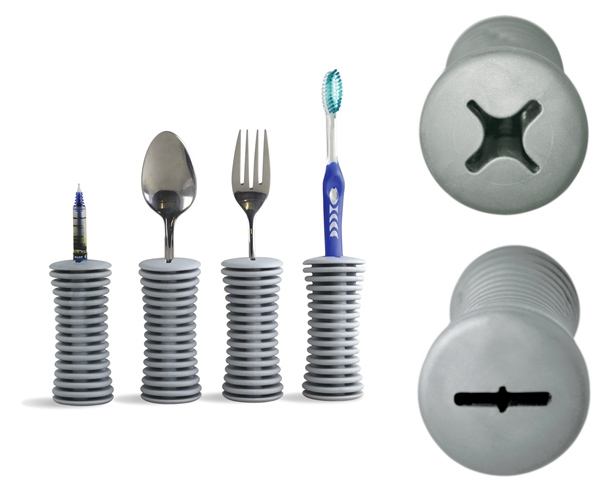 Universal Built-Up Handle, 4 pack |
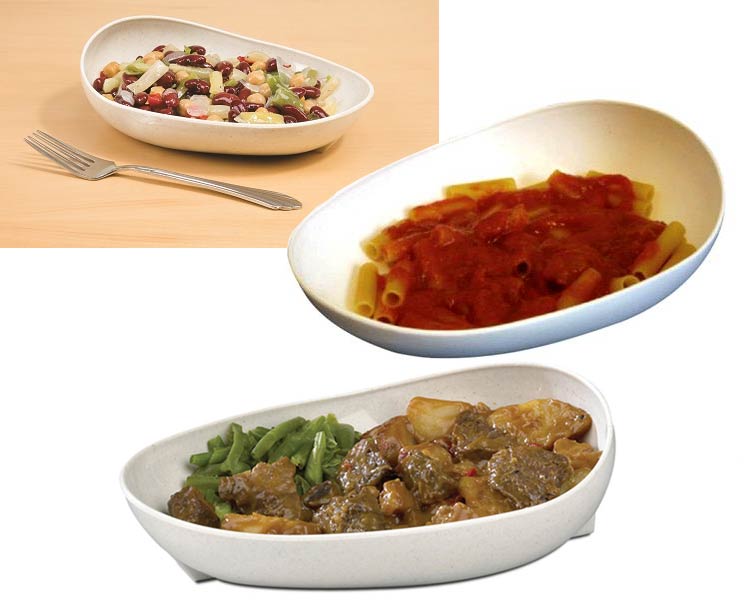 Skidtrol Scooper Dish with Non-Skid Base |
| |
|---|
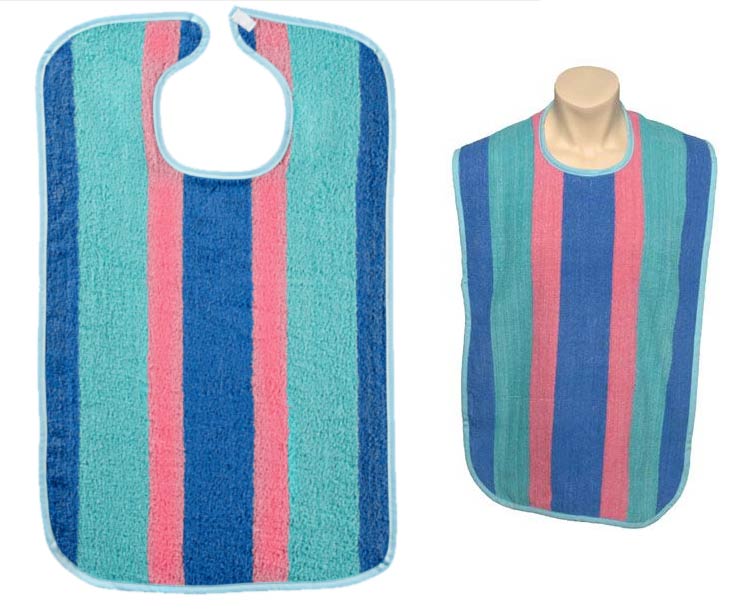 Adult Striped Reusable Bib with Full Barrier |
 Ensure Original Shake, Bottles |
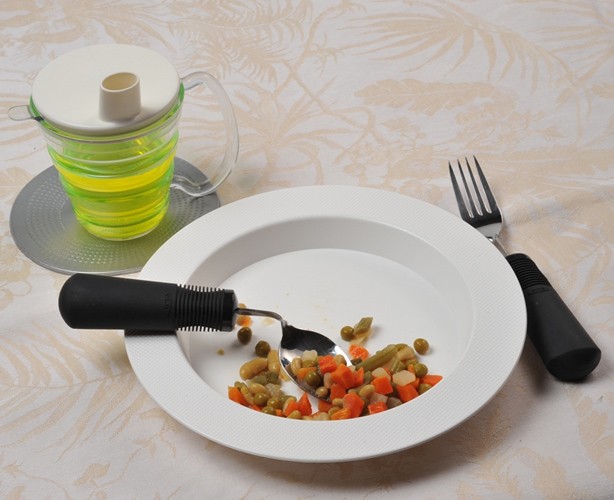 High Sided & Wide Rimmed Ergo Plate |
| Stay Connected! | |
|
|
|
Related Articles
Get $10 off your next order when you sign up to receive our email newsletter.*
Simply enter your email address below!
*Minimum order value of $100. Valid email address to qualify.







